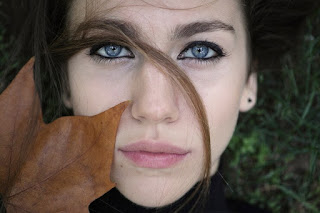Yvette Heiser -The Changing Face of Macro Photography
All of us had admired the nature as a child. To source the beauty of nature, Macro photography has always been an indispensable tool. If you want to become a wildlife photographer, learning macro photography will be beneficial for your career. Macro photography, once confined to a niche group of enthusiasts, has experienced a significant evolution in recent years. Advancements in technology, shifts in artistic approaches, and the influence of social media have collectively reshaped the landscape of macro photography. Here, we will discuss how Macro photography has changed in this digital era.
Technological
Advancements:
Technological
advancements are the most common factor that derives evolution in vast
industries. Photography isn’t an exception to that. The proliferation of
high-quality digital cameras and lenses has revolutionized macro photography.
Advanced sensors and optics enable photographers to capture unprecedented
levels of detail and clarity, while features like focus stacking and image
stabilization expand creative possibilities. In Tips from YvetteHeiser for beginners to get started in photography, he denoted
valuable insights on how to become a professional photographer. Beginners who
just started with photography will get some practical expert advice from it.
Demographic
Shifts:
The
rise of social media platforms has democratized photography, creating a vast
global community of macro photographers. Platforms such as Instagram and Flickr
serve as virtual galleries where photographers from all walks of life share
their work, exchange ideas, and draw inspiration from one another. This
interconnectedness has fueled the evolution of macro photography, transforming
it into a vibrant and dynamic genre shaped by diverse perspectives and creative
exchanges. As a result, the boundaries of macro photography continue to expand,
offering endless opportunities for exploration and innovation.
Artistic
Sensibilities:
Despite
its foundation in scientific precision, macro photography now incorporates
experimental and abstract methods. Modern macro photographers explore the
relationship between light, color, and texture to create visually arresting and
poignant pictures. They upend preconceived ideas and reimagine the potential of
macro photography by pushing the creative envelope within the genre. This move
toward experimentation encourages creativity and artistic freedom, enabling
photographers to produce pictures that stir up feelings and draw viewers in
novel and surprising ways. By reading Yvette Heiser -The Joy ofCapturing Sweet Moments on Film with Yvette Heiser, you can gain
significant knowledge on clicking moments.
Accessibility
and Democratization:
The
integration of macro capabilities in smartphones has democratized macro
photography, making it accessible to a broader audience. Modern smartphones are
equipped with built-in macro lenses, allowing users to capture stunning
close-up images effortlessly. This accessibility eliminates the need for
specialized equipment or technical expertise, empowering anyone with a
smartphone to explore the intricate details of the world around them. As a
result, macro photography has become more inclusive and accessible, inspiring
creativity and expression among individuals of all backgrounds and skill
levels.
Final
thoughts
The
face of macro photography is undergoing a profound transformation, driven by
technological advancements and the democratization of photography. From its
niche origins, macro photography has emerged as a vibrant and dynamic genre
that continues to push the boundaries of creativity and innovation.




Comments
Post a Comment